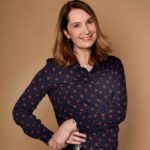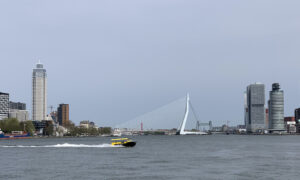(Editor’s note: This is Pt. 2 of a two-part series about becoming a citizen of the Netherlands. That process includes the Inburgering test. You can jump to Pt. 1 here.)
Once Rachel Arts and her son had acclimatised in the Netherlands (and survived the various pandemic lockdowns), they researched the process for securing our Dutch passports and becoming properly “Dutch.” That requires gaining two areas of knowledge: Acquiring fluency in Dutch, and understanding Dutch society.
Here’s their story.
Taking the Dutch integration exam and applying for citizenship
The integration exam, or Inburgering, is the requirement for those who want to become Dutch citizens. It consists of five short examinations covering reading, writing, speaking and listening in the Dutch language, as well as knowledge of Dutch society. There is also a module, Labour Market and Participation, which you must take in your own municipality. If, however, you have worked in the Netherlands, you can gain an exemption for this one, as I did.
Having first moved to the Netherlands with my son (after marrying a Dutch man in late 2019) I set myself a reasonable time frame to complete the inburgering exams and therefore begin the process of securing our Dutch passports. I’d been fortunate enough to get a place on a Dutch language course funded by the local gemeente (local government council).
These had quite a waiting list, but by opting to take a daytime class, I didn’t have to wait too long. For approximately one year, I attended one afternoon a week. Interestingly enough, for those (like me) who weren’t required to do the inburgering (I could have remained on residency status), the classes are free to attend.
For those who are required to do the inburgering, they have to pay, and there is a system of loans available for those who need them.
The class wasn’t specifically geared towards passing the integration exam; it was a general level class, but it certainly helped me to prepare.
Goals and test strategy
I set myself a goal of passing the inburgering integration exams in the autumn of 2022. I’d read that the examination Dutch language skills level was going to be raised from A2 Beginners to B1 Intermediate, so I was keen to make life as easy as possible for myself and to take the exams before this took place.
(Note: The exam level has still not risen, so if you’re thinking of doing it, I’d do it this year!)
Each examination cost 50 euros. I booked dates in for my examinations, spreading them out a couple of weeks apart, booking the one I thought I would find hardest (speaking), first. I was curious to do the exams as I’d heard a lot about them from others.
My experience was fine. There were practice tests online, which I spent time working on in the weeks leading up to each exam until I was familiar with the types of questions and answers.
The Inburgering examinations have strict controls:
• All personal items including watches and phones are placed in a locker before you go in, and your identity is double-checked.
• You are seated in a large room, and of course there is no talking or communication allowed.
• You have a computer to submit your answers into, and for the speaking and listening you have a headset for listening/speaking.
I was happy to pass each examination the first time, even getting full marks in two of them. A few months after the final examination, I received a letter stating that I could begin the process of becoming a citizen.
Applying for citizenship
Once I had passed my inburgering exam, the Netherlands Immigration and Naturalisation
Sevice (IND) wrote to me telling me I could begin my process of naturalising. In March 2023, my son and I had our first meeting at the local goverment council (gemeente). We were missing one piece of documentation, so we had to book another appointment, the next available appointment being in June.
On this occasion, the member of staff assigned to us was rather officious and was not sympathetic to the very long words in Dutch bureaucratic language on the official documents we had to sign. She made it her mission to make us as uncomfortable as possible, loudly complaining to her colleagues that we were not fluent Dutch speakers. (I understood that!)
The irony was, it was obvious that she was not a native Dutch person. So, this was a classic case of an immigrant begrudging another immigrant who is not yet fluent.
Fortunately, despite her cold shoulder, I’d managed to tick all the right boxes on the forms without her help and our application was approved. We paid the bill (more than 1,100 euros in fees to acquire our citizenship for an adult and a child) and were told we would need to wait a few months now to get to the next step, due to a backlog in processing.
Celebration!
In November 2023, we got a letter stating “his majesty the King has a positive result” in regard of our request to naturalise, instructing us to wait for an invitation from the municipality for the naturalisation ceremony.
The next communication came early in 2024, inviting us to attend in February for our naturalisation ceremony, although our naturalisation had actually been granted the previous October. This was to be where we would have the “Declaration of Solidarity” read to us, which we had to affirm. Our gemeente communicated to us that the more festive part of the ceremony, where everyone that had naturalised that year would be invited to a big celebration at the city hall, would be held later in the year.
The day of our ceremony, we were very excited, not really knowing what to expect. This was the final step in a process that had taken over a year from the time I’d finished my inburgering examinations.
We arrived at the gemeente early, and after navigating the complicated ticketing system for appointments, we were sent to one of the small rooms where a friendly Dutch lady assisted us. It was quite simple; we sat at the desk, she read the Declaration to us and we had to respond by reading a short statement.
There was a choice of a religious and non-religious statement of agreement, we were happy to do the religious one. She congratulated us with a “Gefeliciteerd, juliie zijn Nederlanders!” (“Congratulations, you are Dutch!”) and that was that. There wasn’t anything particularly ceremonial about it, but we still have the end of year event to look forward to.
We asked about getting our new passports.
Normally this would be another appointment on another day to request these, but the gemeente worker was helpful in that she arranged that we could see a colleague immediately. We handed over our residency permits and paid a fee and were told we could come back in a few days to collect our passports.
Final thoughts
I would encourage anyone thinking of applying for citizenship to do it, don’t delay.
It can be a lengthy process.
I’m grateful that my son and I were able to acquire our citizenship. It gives us certainty and peace of mind for the future so that whatever happens, if we move elsewhere for a time, we can always come back to what is now, our home.
––––––––––
Read more about the Netherlands here in Dispatches’ archives.

Rachel Arts
Rachel Arts originally is from the UK but relocated to Eindhoven in 2019 with her husband. Rachel is an entrepreneur. Her business, Talentstorm, draws on her 20-plus years in corporate learning to help develop individuals and organisations. She loves to write about all things related to personal development, self-directed learning and modern learning practices. To learn more more, check out the Talentstorm website here or follow her people-development blog here for regular tips to achieve work and career goals.














